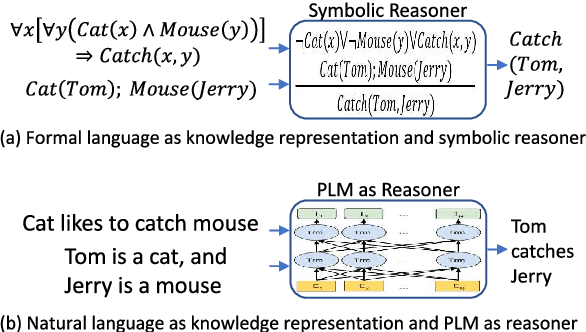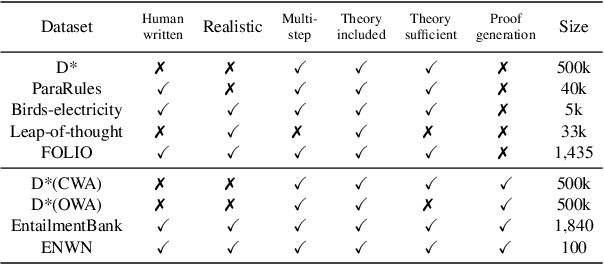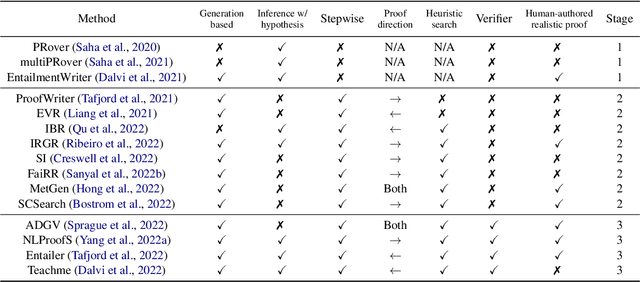Logical Reasoning over Natural Language as Knowledge Representation: A Survey
Paper and Code
Mar 21, 2023



Logical reasoning is central to human cognition and intelligence. Past research of logical reasoning within AI uses formal language as knowledge representation~(and symbolic reasoners). However, reasoning with formal language has proved challenging~(e.g., brittleness and knowledge-acquisition bottleneck). This paper provides a comprehensive overview on a new paradigm of logical reasoning, which uses natural language as knowledge representation~(and pretrained language models as reasoners), including philosophical definition and categorization of logical reasoning, advantages of the new paradigm, benchmarks and methods, challenges of the new paradigm, desirable tasks & methods in the future, and relation to related NLP fields. This new paradigm is promising since it not only alleviates many challenges of formal representation but also has advantages over end-to-end neural methods.
 Add to Chrome
Add to Chrome Add to Firefox
Add to Firefox Add to Edge
Add to Edge